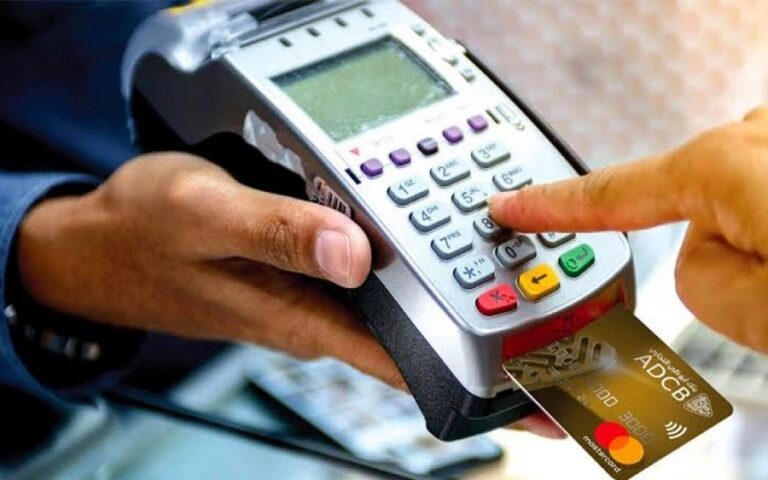For Ozovehe Blessing, an Abuja-based school teacher, sending money to her brother at Kogi State University has become a costly affair. A recent N5,000 transfer through her mobile banking app attracted a N10 fee. When her brother withdrew the money from an ATM outside his bank’s network, another N100 was deducted. Had he used a POS agent, fees could have reached as high as N500—leaving him with far less than the original amount.
This experience is common across Nigeria, where seemingly small banking charges steadily chip away at citizens’ earnings. From ATM fees and card maintenance to transfer costs and hidden deductions, these charges have become a silent financial drain for millions.
The Hidden Costs of Everyday Banking
Despite Central Bank of Nigeria (CBN) efforts to regulate the financial ecosystem, many Nigerians are overwhelmed by the volume and frequency of bank charges. Whether it’s routine fund transfers, ATM withdrawals, or card renewals, fees are piling up across every financial interaction.
ATM and Card Charges
New CBN regulations introduced on February 11 increased fees for cash withdrawals.
-
On-site withdrawals (at bank-owned ATMs not within branch premises): N100 per N20,000
-
Off-site withdrawals (e.g., at malls or airports): N100 base fee + up to N500 surcharge
Debit cards come with N50 quarterly maintenance fees, while issuing or renewing credit cards costs N1,000. Users of internet banking hardware tokens pay up to N2,500 for the device.
Cybersecurity Levy Confusion
A proposed 0.5% cybersecurity levy on electronic transactions stirred public outrage. The CBN later revised the rate to 0.005%, aligning it with the Cybercrime Act of 2015. While seemingly minimal—N0.50 for a N10,000 transfer, N5 for N100,000, and N50 for N1 million—this levy adds to a long list of fees Nigerians encounter daily.
Transfer and Merchant Fees
Electronic transfers are also taxed:
-
Below N5,000: N10
-
N5,001–N50,000: N25
-
Above N50,000: N50
In the merchant space, businesses are charged 0.5% per transaction, capped at N1,000. Bill payments through digital platforms have a N500 limit per beneficiary.
Unseen Deductions Add Up
Many Nigerians only grasp the weight of these fees after noticing their account balances shrinking unexpectedly. Traders like Olalekan Adewale, who frequently transfers N500,000, incur a cascade of deductions:
-
Cybersecurity levy: N25
-
Bank transfer fee: N50
-
VAT: N3.75
-
SMS notification: N6
Total: N84.75 per transaction
Multiply that by several transactions a week, and the cost becomes substantial—especially for those operating on thin profit margins.
Neobanks: A New Hope for Affordable Banking
Amid growing frustration, neobanks have emerged as a saving grace. These digital-first financial services are gaining traction among Nigerians—especially in markets and retail outlets—thanks to their affordability and convenience.
“I used to visit my bank every day, now I barely go,” says Mr Adewale, who now uses Moniepoint for business. Transfers cost just N20, and withdrawals are charged at 0.5% up to N20,000, or N100 flat for higher amounts—far cheaper than traditional banks.
With mobile POS machines now commonplace, traders and artisans alike are choosing neobanks over conventional banking systems weighed down by high fees and inconsistent service.
How Small Businesses Are Taking the Hit
Excessive banking charges don’t just affect individuals—they also eat into business profits. High transaction fees discourage digital payments, complicate budgeting, and create barriers to financial inclusion. Even account maintenance fees add up:
-
Current accounts: N1 per N1,000, or N500 on a N500,000 transfer
-
USSD access: N6.98 per session
-
SMS alerts: N6
-
Stamp duties: N50 on transactions over N10,000
-
VAT: 7.5% on banking services
While some exemptions exist—like salary transfers or same-account-holder transactions—the financial pressure remains high for the average user.
Regulations in Place, But Is It Enough?
The CBN’s Guide to Bank Charges aims to enforce fair practices, and penalties for overcharging can reach N2 million per infraction. However, enforcement remains inconsistent, and customers often face charges they weren’t fully informed about—such as intra-scheme money transfers, which cost N50–N500 depending on account status.
The cashless policy introduces yet another layer of fees:
-
Individual deposits over N500,000: 2% fee
-
Withdrawals over the same threshold: 3% fee
-
Corporate deposits over N3 million: 3% fee, withdrawals at 5%
Is This Still Banking—or Just Moneykeeping?
Many Nigerians now question the very purpose of traditional banking. Paul Alaje, senior partner at SPM Professionals, argues that banks have lost their way—focused more on collecting charges than empowering customers with loans or financial services.
“What we have is moneykeeping and charges on deposits,” he says. “The system is unsustainable.”
According to Alaje, fintechs are the future. Their focus on customer experience, transparency, and evolving needs will gradually erode the dominance of legacy banks.
“Eventually, even the biggest banks may give way to the new,” he adds.
Conclusion: A Silent Crisis in Plain Sight
While each banking fee may seem insignificant on its own, the cumulative impact is deeply felt—especially in a country battling inflation, unemployment, and poverty. For many Nigerians, the banking system no longer feels like a lifeline but a slow drain on hard-earned money.
As neobanks continue to rise, and fintechs reshape how Nigerians move, save, and grow their money, the question remains: Will traditional banks evolve—or be left behind?

